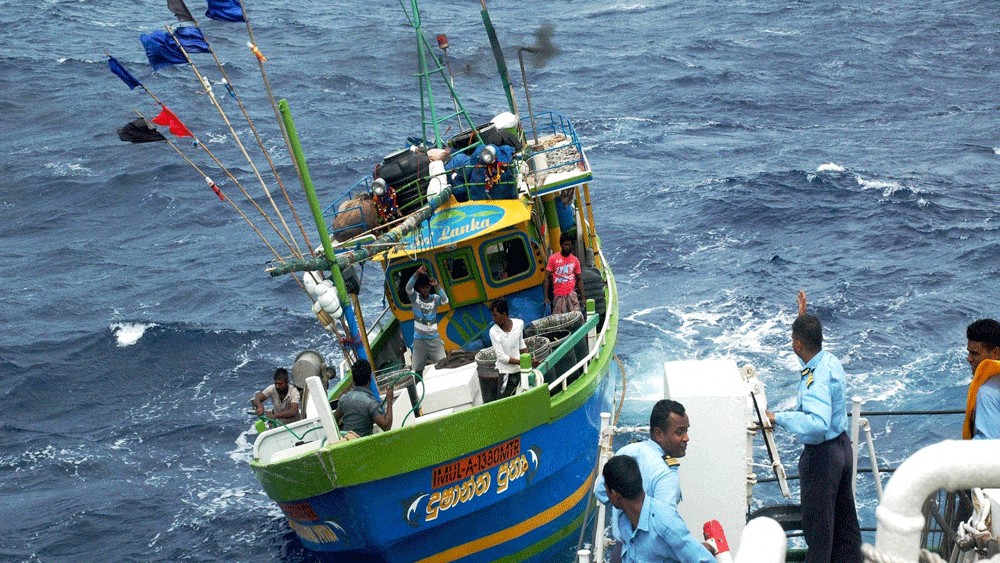
There have been several alleged incidents of Sri Lankan Navy personnel arresting Indian fishermen fishing in the Palk Strait and seizing their boats. The Palk Strait, which is a narrow strip of water separating Tamil Nadu from Sri Lanka, is a rich fishing ground for fishermen from both the countries.
PTI file photo
The arrest of 32 Tamil Nadu fishermen last week by the Sri Lankan Navy has roiled further the troubled waters of the Palk Strait. A Tamil Nadu fisherman died on August 1 when the Sri Lankan Navy tried to chase the boat he was in. In June, a Sri Lankan Navy sailor died during another chase of fishing boats from Tamil Nadu. There are now close to 70 fishermen in Sri Lankan custody, including half a dozen serving sentences for trespass. The incidents point to the increasing severity of a problem that has existed for decades, even before the Maritime Boundary Line between the two countries was delineated in the 1970s.
At its core, the problem is one of scarce resources. To be clear, it is not Tamil Nadu fishermen vs the Sri Lankan Navy, but the two communities of Tamil fishers on either side of the Palk Strait competing to secure their livelihoods in a region of vanishing marine life. This competition has become especially acute since the end of the civil war in Sri Lanka in 2009, when their security forces lifted long-standing restrictions on fishermen in northern Sri Lanka from taking their boats beyond a few hundred metres from the shore. The restrictions had served to check LTTE supply runs. It is an unequal contest.
The fishermen from Tamil Nadu are equipped with trawlers. The ecologically destructive practice of “bottom trawling” has long finished marine resources on the Tamil Nadu side. With this method being deployed by Tamil Nadu fishers in Sri Lankan waters, fishing communities in northern Sri Lanka fear the worst. The fishermen in Sri Lanka's Tamil north are still recovering from the economic destruction of the war, and are unarguably at a disadvantage. In a reversal of the past, they look on the Sri Lankan Navy as their saviours, and the fishers across the water as their enemies.
In 2016, an India-Sri Lanka ministerial meeting decided to set up a Joint Working Group to address the situation and find ways to end the practice of bottom trawling. Eight years later, far from resolution, the problem has grown. Indeed, the JWG, which has held five meetings, has not been able to fix a date for a meeting after 2022, perhaps due to the economic crisis in Sri Lanka. On the Indian side, efforts to draw Tamil Nadu fishers away from Sri Lankan waters and diversify into deep sea fishing and processing have not been successful. Tamil Nadu fishermen seem determined to violate the international boundary. In Sri Lanka, an abject lack of resources has come in the way of planning for the long term. In both countries, the issue is being used for domestic political point scoring, and it remains a festering issue in India-Sri Lanka relations.
Another agreement reached during the ministerial level talks of 2016 was that fishers' associations from both sides would be encouraged to meet every six months, and discuss and find their own ways to resolve the problem. This agreement has not been implemented. In many parts of the world, border communities have co-operated on a variety of development issues, helped by a common language and economic interests. Delhi and Colombo should put in concerted efforts to get the two fishing communities to sit across the table regularly, talk to each other, and find a way to end this deadly contest.